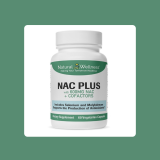

Printed on a consumable’s packaging, expiration dates may or may not be an important indicator for evaluating consumption safety. Expiration dates are necessary for determining when it is safe to buy, cook, and consume perishable foods like poultry, they may not be as vital for assessing the value of an herbal supplement. Before tossing your nutraceuticals in the trash, be sure to recognize the meaning and validity behind that expiration date.
It is relatively easy to identify foods in a grocery store that might spoil if not consumed right away. Most medications don’t exactly spoil, but they might become less effective if the active ingredients break down. Hence, the lines blur when assessing the effectiveness and safety of an ‘expired’ drug or supplement.
Drug Expiration Dates: What We Know
Passed in 1979, U.S. law requires drug manufacturers to stamp an expiration date on their products. This is the date up to which the manufacturer guarantees full potency and safety. However, this doesn’t always mean the medication becomes harmful after that point.
Most of what we know about drug expiration dates comes from a massive FDA study commissioned by the U.S. military, which maintains a large stockpile of medications. The study found that about 90% of more than 100 prescription and over-the-counter medications were still safe and effective even 10–15 years past their expiration dates — provided they were stored properly.
According to Harvard Medical School and the FDA, most medications do not become problematic after expiration, but some exceptions do exist. These include drugs that:
- Have a narrow therapeutic window
- Degrade quickly due to their chemical nature
- Are used in life-saving situations where potency is crucial
Medications That Should Not Be Used After Expiration
The following medications are generally considered unsafe or unreliable after their expiration dates:
- Tetracycline – Degraded forms may be harmful to the kidneys (though newer formulations may be more stable).
- Nitroglycerin – Breaks down quickly and loses effectiveness, especially if not stored correctly.
- Insulin – Loses potency quickly, especially at room temperature.
- Epinephrine (EpiPens) – Effectiveness degrades, which can be life-threatening during an allergic emergency.
- Liquid Antibiotics – May lose effectiveness or grow bacteria over time.
- Inhalers (e.g., albuterol) – The canister may not deliver the correct dosage.
- Vaccines – Potency is highly time- and temperature-sensitive.
- Biologicals and Biologics – Complex proteins that degrade rapidly after expiration.
- Eye Drops – May no longer be sterile, increasing the risk of eye infection.
Storage Still Matters
For most other medications, storage conditions can make a big difference. Drugs stored in cool, dry, and dark places (ideally unopened in their original packaging) can retain much of their potency long past the printed expiration date.
However, once the container is opened, moisture, light, and oxygen can accelerate degradation — so the expiration date may no longer apply.
What Do Expiration Dates Really Mean?
Unlike prescription medications, the FDA does not require expiration dates on dietary supplements. However, most reputable manufacturers still include them to guarantee the product’s strength, quality, and effectiveness up to a specific date.
That expiration date often marks the point at which a product is expected to contain at least 100% of the labeled potency—assuming it’s been stored correctly. After that point, many supplements may gradually lose potency, but they rarely become harmful.
According to a 2024 article by Verywell Health, most supplements are still safe and usable up to two years beyond their printed expiration date—especially if unopened and kept in cool, dry conditions.
A majority of supplements can continue to hold their nutritional value for years after their expiration date, particularly if they are kept in a cool, dry, dark location and remain sealed in their original packaging. In fact, it is not unusual for herbal products to slowly degrade over time, but potency often starts to diminish about two years after the expiration date. This longevity assumes that the packaging has not been opened and has been stored correctly.
Shelf Life of Common Supplements
The longevity of supplements varies depending on the type, packaging, and how it’s stored. Here’s a general guide to what you can expect from different supplements:
- Multivitamins: 1–2 years past expiration
- Vitamin B Complex: Should be consumed by expiration due to instability
- Amino Acids: Slowly weaken with age, remaining potent for about 1–2 years past expiration
- Enzymes: Slowly weaken with age, remaining potent for about 1 year past expiration
- Fish Oil: Highly perishable, fish oil supplements should be free of heavy metals and manufactured, stored, and bottled properly to prevent rancidity. Some require refrigeration, but most will likely spoil about 3 months after expiration
- Probiotics: Lose potency within 3 months of expiration if required to be kept refrigerated
- Liquid Supplements: About 1 year after expiration due to weakening potency with age
Note: Always discard supplements that show visible changes such as change in odor, discoloration, clumping, or mold.
Safe Storage Extends Life
Medications and supplements last longer when:
- Stored in cool, dry environments
- Kept in original, sealed containers
- Protected from light, heat, and humidity
Once opened, shelf life may decrease significantly.
Should You Toss Expired Supplements?
Ultimately, the decision to discard expired supplements depends on the type of product and how it has been stored. If it’s a highly perishable supplement like fish oil or probiotics, replacing it after expiration is recommended. For most other supplements, however, an expiration date is more of a guideline for optimal potency rather than a hard and fast rule.
Keep in mind that a recently expired supplement is likely still as valuable as one that’s just been produced—unless it falls into one of the categories listed above.
When in doubt, replacing your supplements once they’ve passed their expiration date is a good practice—particularly if you are relying on them for ongoing health benefits.
Final Thoughts
Expiration dates on supplements are best viewed as quality benchmarks, not safety warnings. While potency may fade, especially after two years, many supplements remain safe and effective well beyond their printed expiration date.
For best results:
- Store your supplements and medications properly
- Replace items that are essential for acute needs (like EpiPens or insulin)
- Trust your senses—discard anything that smells, looks, or feels “off”
- When in doubt, consult your healthcare provider





I was just about to discard out of date multivitamins when your article advice said they’re fine. thanks
I would like to know if pure mineral supplements might be more stable. People often take pure magnesium, calcium, and potassium supplements.
Pure mineral supplements like magnesium, calcium, and potassium are generally more stable because they are inorganic compounds, which makes them less prone to breaking down from heat, light, or moisture. These minerals often retain their potency well beyond their expiration dates if stored properly.